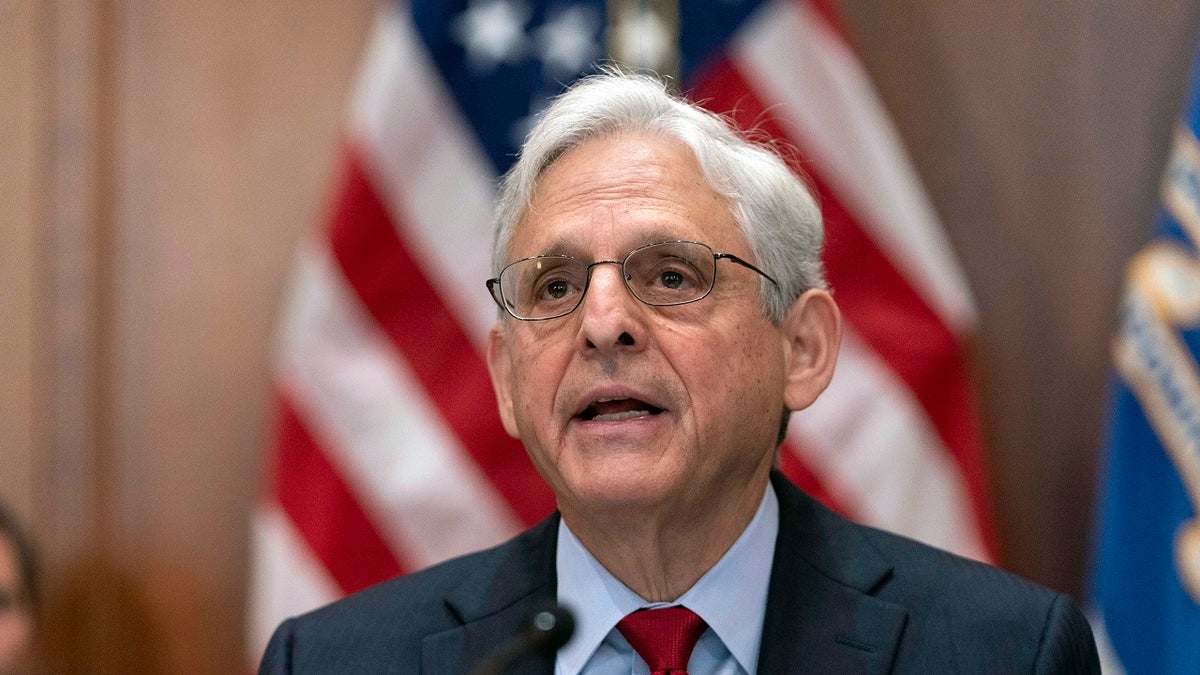Biden wanted Garland to take 'decisive action' against Trump: Report
'Hannity' panelists weigh in on the New York Times being 'radio silent' about their own reporting that President Biden wanted to see a January 6 indictment of former President Donald Trump.
There may be no harder job in the U.S. government than attorney general. What makes it uniquely challenging? On the one hand, the attorney general is a political position which is responsible for executing the White House’s policy agenda. But on the other, the attorney general and the Department of Justice he or she leads is responsible for enforcing the law in an even-handed and neutral fashion without partisan considerations.
Today, public trust in the Department of Justice is rapidly deteriorating on multiple fronts due to what increasingly appears to be selective enforcement. Merrick Garland has the opportunity – and I would argue, the obligation – to re-instill confidence in the Department of Justice, but he needs to move fast.
When enforcing the law, the attorney general must take into consideration prudential reasons for bringing a case or not – he or she must consider whether "the juice is worth the squeeze" given the precedent it might set, a domino effect in may cause, or a question about fairness it could raise. Some may call this politics. Others call it life. There is no law school textbook or statutory code that governs this "gray" – yet, it is this gray that is integral to the role of Attorney General and why it requires extraordinary wisdom from the men and women who serve in the position, and so often results in confusion and tough, but important questions about their role.
Still, it is the attorney general’s job to be aware of these concerns and ensure public trust in the department’s impartiality. This often requires the AG to make exceptions to DOJ’s general policy about not commenting on ongoing investigations and address specific areas of concern and provide the rationale for the behind controversial decisions.
GARLAND IN 'GRAVE DANGER' OF OBSTRUCTION OF JUSTICE CHARGE FOR TARGETING TRUMP, NEWT GINGRICH SAYS
In my old role as director of public affairs at the Department of Justice, I was responsible for preparing the attorney general to speak publicly on hot button issues and flagging the instances when he needed to address them publicly, whether it be via a press conference, a media interview or congressional testimony.
If I were still there, here are some top-of-mind questions on enforcement I’d be working through with the attorney general and encouraging him to address as soon as possible:
- Why did the U.S. attorney in D.C. decline to prosecute 67% of people arrested in Washington last year? The Washington Post called this "startling." Since DC violent crime is significantly up – murder alone by almost 30% – and the D.C. U.S. attorney is a unique office responsible for prosecuting both federal and local crime, are you concerned about what is happening – or not happening – out of the office down the street from you?
- Are you committed to devoting the same resources and vigor to fighting violent crime Washington and in cities across America as you are towards Jan. 6 offenders? The D.C. U.S. attorneys website is dominated by Jan. 6 updates and very little on the murders and crime that are ravaging the city.
- Why did DOJ prosecutor Leo Wise recommend no prison time for Hunter Biden but insisted on a year in prison for the former Baltimore police commissioner who committed exactly the same crime? The commissioner owed far less in taxes than Hunter, and yet ensured he would go to jail, while he sought to give Hunter sweeping immunity from other potential crimes committed.
- Are you concerned about the appearance of aggressively prosecuting the current GOP front-runner for the 2024 race? DOJ has a known policy on election sensitivity. Does DOJ plan to pause – and if so, when – all investigative and prosecutorial steps with respect to the former president in the months leading up to the 2024 election in order to avoid the appearance of influencing the election?
- Given that Joe Biden is the attorney general's boss and has declared his son's innocence publicly, why have you not appointed a special counsel to investigate Hunter to remove any appearance of impropriety and assure the public of even-handed treatment under the law?
- Are you concerned about the appearance of disparate treatment from special counsels? Special Counsel John Durham did not bring a "conspiracy to defraud the US government" charge against members of the Hillary Clinton campaign who sought to influence the 2016 election in their favor by feeding known false information about Trump to the FBI but Jack Smith did bring that same charge against Trump regarding his behavior in the 2020 election? While special counsels are "independent," the law allows you to intervene if necessary.
- Why did the Southern District of New York send a letter asking when the judge was planning on putting Hunter Biden’s former best friend and business partner Devon Archer in jail right before Archer was set to testify before a congressional committee? Given that it has been 18 months since Archer was sentenced and he was scheduled to present testimony to Congress implicating President Biden and his son in potentially problematic business dealings, do you think the timing of the letter was problematic?

Attorney General Merrick Garland speaks during a meeting with U.S. attorneys in Washington, June 14, 2023. (AP/Jose Luis Magana)
The bottom line is that as America’s top cop, the attorney general is not afforded the luxury of staying silent amid growing frustration that his department is selectively enforcing the law, with those of a particular political persuasion consistently appearing to escape scrutiny and punishment.
CLICK HERE TO GET THE FOX NEWS APP
I hope Attorney General Garland seeks out an opportunity soon to answer some of these questions that are fundamental to the American people’s trust in our justice system




